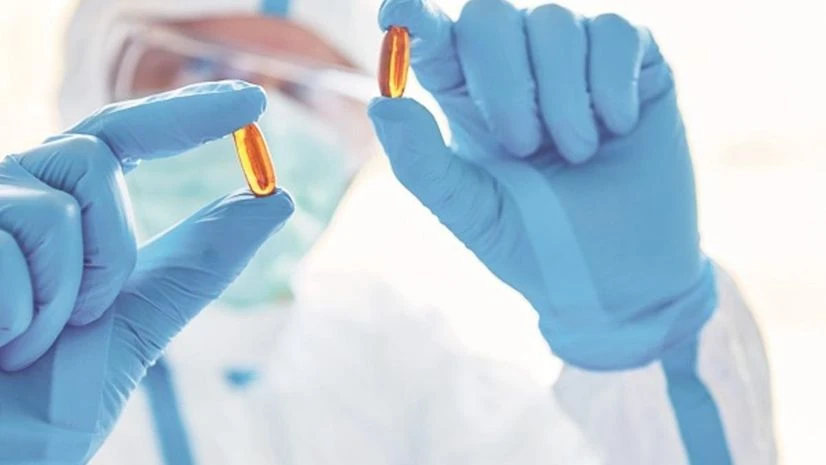India, which accounted for 83 per cent of all malaria deaths in Southeast Asia last year, is seeing some hope as a malaria pill has reached phase-2 clinical trials.
While Ghana recently approved Oxford and Serum Institute of India’s (SII’s) R21-Matrix-M vaccine, Zydus’s anti-malaria oral drug could be the first new treatment option to be available here.
The novel anti-malarial compound from Zydus Lifesciences, which is active against all current clinical strains, including drug-resistant ones, has reached phase-2 clinical trials.
ZY-19489, a novel anti-malarial compound, will be a potential single-dose oral pill to fight malaria, Zydus Lifesciences said.
This candidate is now undergoing phase-2 clinical trials in India. The company said the phase-1 clinical trials have demonstrated a long half-life and potential for a single-dose cure for malaria.
Also Read
“In a separate malaria challenge trial, potent anti-malarial activity has been demonstrated following single-dose oral administration of ZY-19489,” it added.
The candidate has been developed in collaboration with Medicines for Malaria Venture (MMV) and is a novel anti-malarial compound.
It is active against all current clinical strains of P. falciparum and P. vivax, including drug-resistant strains.
Artemisinin resistance — a delay in the clearance of malaria parasites from the bloodstream — is seen as a mounting challenge to the global fight against malaria.
ZY19489 is being developed to provide an effective alternative to the current front-line anti-malarial drugs for the treatment of P. falciparum and P. vivax malaria, as artemisinin-based combination therapies (ACTs) are under threat of resistance.
Zydus says it’s hopeful of providing a new cure for malaria, which affects millions in India.
Pankaj R Patel, chairman, Zydus Group, said, “As the global community is facing threats from rapidly-mutating malaria strains and the rise in artemisinin resistance cases, we have to be prepared with novel therapeutic drugs. ZY-19489 is a potential single-dose radical cure for P.falciparum and P. vivax malaria, which are major global health risks today.”
He added that ZY-19489 also aligns with the company’s overarching goal of innovating to bring novel solutions for bridging unmet healthcare needs. This candidate has also received an Orphan Drug Designation from the US FDA.
The Orphan Drug Designation provides up to seven years of marketing exclusivity in the US.
Orphan Drug Designation provides eligibility for certain development incentives, including tax credits for qualified clinical testing. It also provides prescription drug user fee exemptions and seven-year marketing exclusivity upon FDA approval.
Last week, the University of Oxford-developed and SII-manufactured malaria vaccine has been licensed for use in Ghana by Africa’s Food and Drugs Authority.
The nod comes before the publication of final-stage trial data.
It marks the first regulatory clearance for the R21/Matrix-M malaria vaccine for use in any country. The R21/Matrix-M vaccine, which uses Novavax’s adjuvant technology, has been approved for use in children aged 5 to 36 months. This is the age group at highest risk of death from malaria.
SII would be making this vaccine in its Pune facility.
Company sources said the initial focus now is to get the World Health Organization (WHO) prequalification for this vaccine. This would create a distribution network across several countries that require the vaccine.
“The idea is to also scale up the manufacturing of this vaccine to around 100 million annual doses,” the source said.
The company did not wish to divulge its India-specific plans at this moment.
Industry insiders point out that to bring such a vaccine to India, regulators would require local trial data.
Most of the vaccines in the works, in fact, are targeted at African countries.
GSK’s plasmodium falciparum malaria vaccine (RTS,S/AS01E tentatively branded Mosquirix), which Bharat Biotech will make, will initially go to African countries.
The antigen RTS,S will be made by Bharat Biotech, while GSK will supply the adjuvant of the vaccine. The vaccine is based on 30 years of research and UNICEF has placed orders for 18 million doses worth $170 million.
Bharat Biotech was setting up the manufacturing site at Bhubaneshwar. The company, which will be the sole supplier of the vaccine till 2029, did not comment on the developments. It is set to supply 15 million doses to African countries annually.
While India would be the manufacturing hub for malaria vaccines for the world, there is still some time till these vaccines are available in the country.
According to the World Malaria Report 2022, globally, there were an estimated 247 million malaria cases in 2021 in 84 malaria-endemic countries. A major health concern, it is estimated that a child dies from malaria every minute. In 2021, India accounted for about 79 per cent of all malaria cases in Southeast Asia.

)
